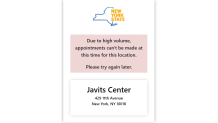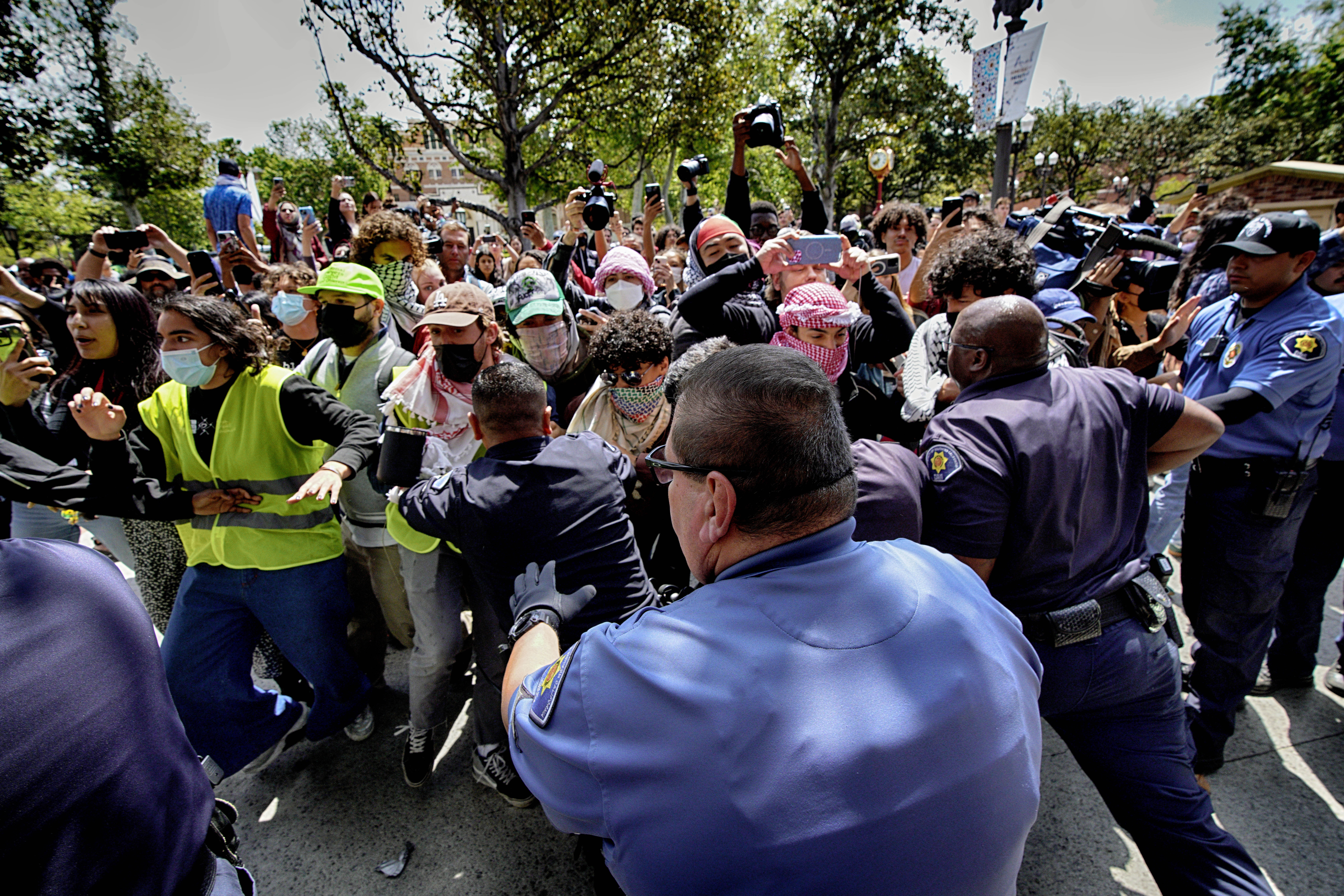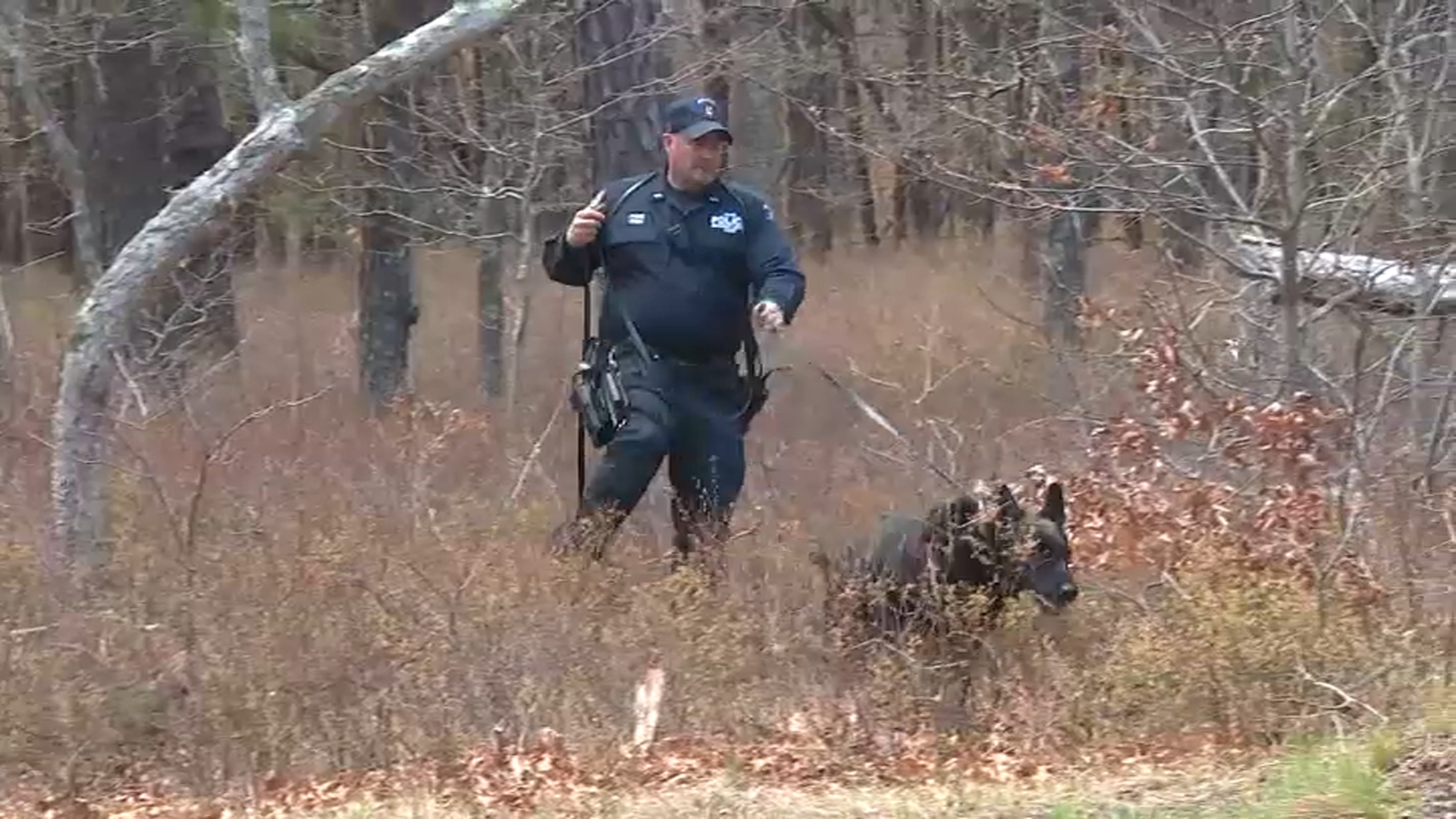A rush to secure vaccine appointments appeared to bring the state's website to a halt Sunday morning after New Yorkers with pre-existing health conditions became the latest wave eligible to sign up for their first shot.
New Yorkers age 16 to 64 with those pre-existing conditions were given the green light to start scheduling appointments at state-run sites Sunday, with Monday still being the first day they can get shots. The state has warned the influx of newly eligible New Yorkers, some of them among the most vulnerable, could mark the biggest stress test the already taxed and still young system has seen so far. Expect frustration, they said.
The state's "Am I Eligible" screening tool was updated Sunday at 8 a.m. to reflect eligibility for those with comorbidities and underlying health conditions. New appointments will be released on a rolling basis over the coming weeks, according to the state.
In order to be vaccinated, people will have to provide a doctor’s letter, a signed certification or other medical information showing they have an eligible health condition. New York’s list includes cancer, pregnancy, heart conditions, weakened immune systems, sickle cell disease, diabetes, neurologic conditions, liver disease, obesity, pulmonary disease, chronic kidney disease and intellectual and development disabilities such as Down Syndrome.
The website for state-run vaccination sites allowed people to check a box indicating they had an eligible comorbidity starting Sunday, but many attempts to book an appointment yielded a message that said, “Due to high volume, appointments can’t be made at this time for this location. Please try again later.”

Gary Holmes, a spokesperson for the state Department of Health, said the scheduling site was working “extremely well” and an average of 350 appointments were being booked per minute Sunday.
News
“As expected, the site is experiencing a tremendous amount of volume after appointments were opened to New Yorkers with comorbidities and underlying conditions this morning,” Holmes said in an email.
As of Sunday, New York City had fewer than 58,367 first doses left on hand. City-run programs have administered nearly 812,233 first doses to date, about 93 percent of the total they have received. The city's eligibility pool will expand considerably in just a matter of days, when people with qualifying underlying health conditions earn their chance to start scheduling appointments Monday.
New York was set to receive another 317,700 doses intended for use as the first shot in a two-shot protocol for the week ending Saturday — down from 320,525 for the prior week, but up from 250,000 in mid-January.
To date, state healthcare distribution sites have administered about 89 percent of all first doses received, amounting to nearly 1.95 million shots. Just more than 10 percent of the 19 million people who call New York home have had at least one shot (a disproportionate share of them white people). Experts say the low threshold for herd immunity is 75 percent. The ideal is closer to 85 percent.
Overall, vaccines are expected to protect against the variants that have emerged and the new ones that will over time. Of greater concern, top federal officials say, is that they could lead to new case explosions at a critically vulnerable time for the country, with the goal of herd immunity via vaccination many months away.
State lab tests have confirmed an additional 11 cases of the U.K. variant, bringing the state's total to 70, Gov. Andrew Cuomo said Saturday. Of those new cases, eight were found in people living in New York City and the remaining three are tied to Suffolk and Rockland County, according to the governor. Outside of the city, 13 counties have at least one case of the variant.
New Yorkers are to be commended for their efforts in fighting back the virus and lowering the spread of the virus, Cuomo said in his Saturday press release. Despite new variant cases, he pointed to successes in a continued decline in the state's overall positivity rate and a new low in hospitalizations not seen since Christmas. 6,888 people were hospitalized for the virus as of Saturday.
"Hospitalization and infection rates are continuing to fall statewide and New Yorkers should be commended for all their hard work and sacrifice which helped make this a reality," Cuomo said. "If we are to win this war against COVID once and for all, we must keep driving down these rates, as well as to get as many shots into arms as possible."
Cases of the highly contagious U.K. strain have soared across the U.S. in recent weeks and now stand at 981, a 5 percent increase between the CDC's Tuesday and Thursday reports but a 42 percent increase between Sunday and Thursday.
Since then, totals rose locally in New York to 70, in New Jersey to 36 and in Connecticut to 42, though tri-state officials the actual number of variant cases are likely much higher than reported, given the exhaustive genetic sequencing process required to detect a variant in an individual sample.
"We're deeply concerned about these variants, they're the x-factor right now," de Blasio said on WNYC Friday. "I think it's fine to take those incremental steps. I want to see our economy come back but if at any point the data suggests we got to take a step back for a time, we got to listen to that and react."



